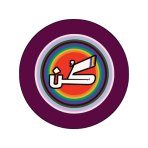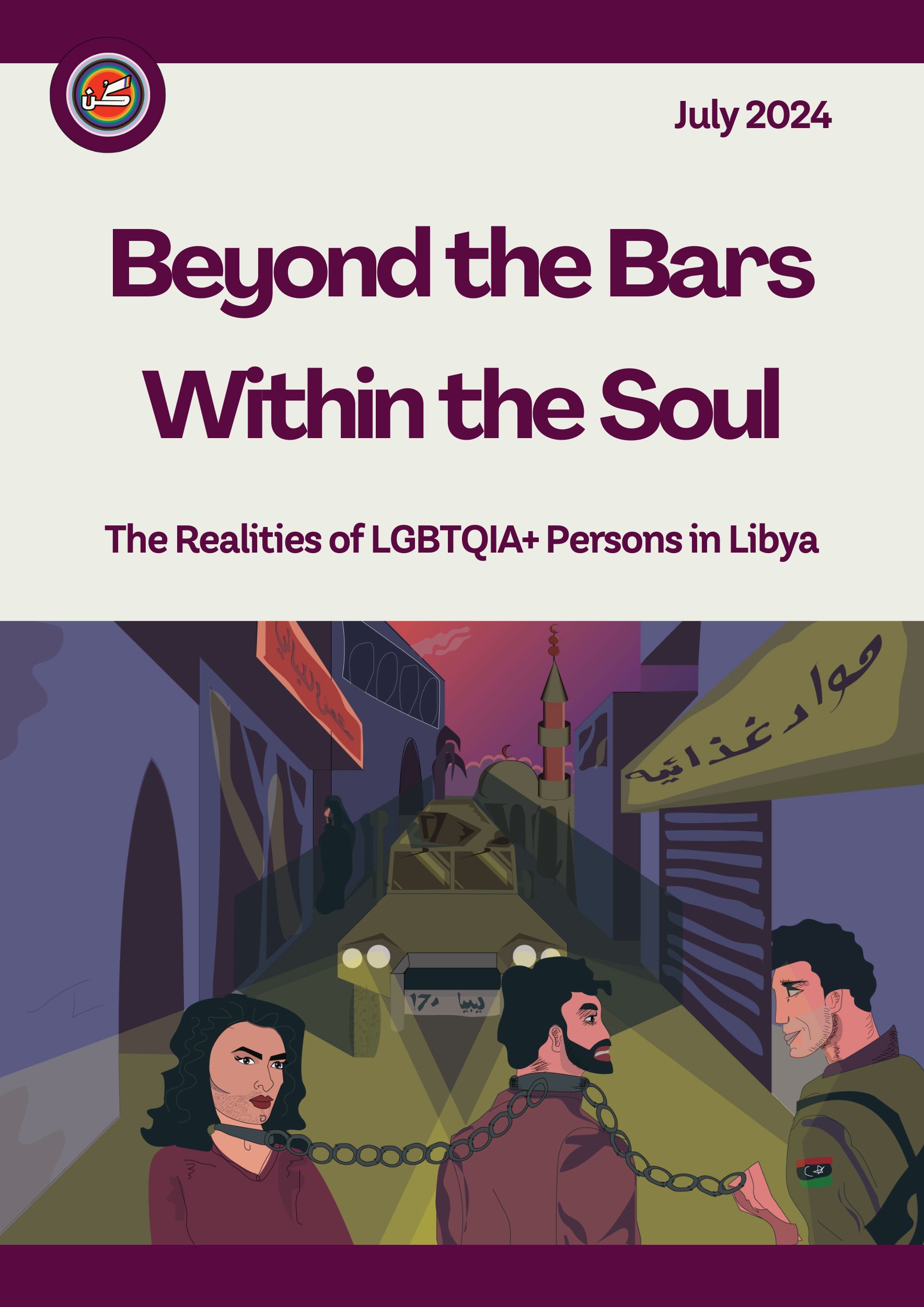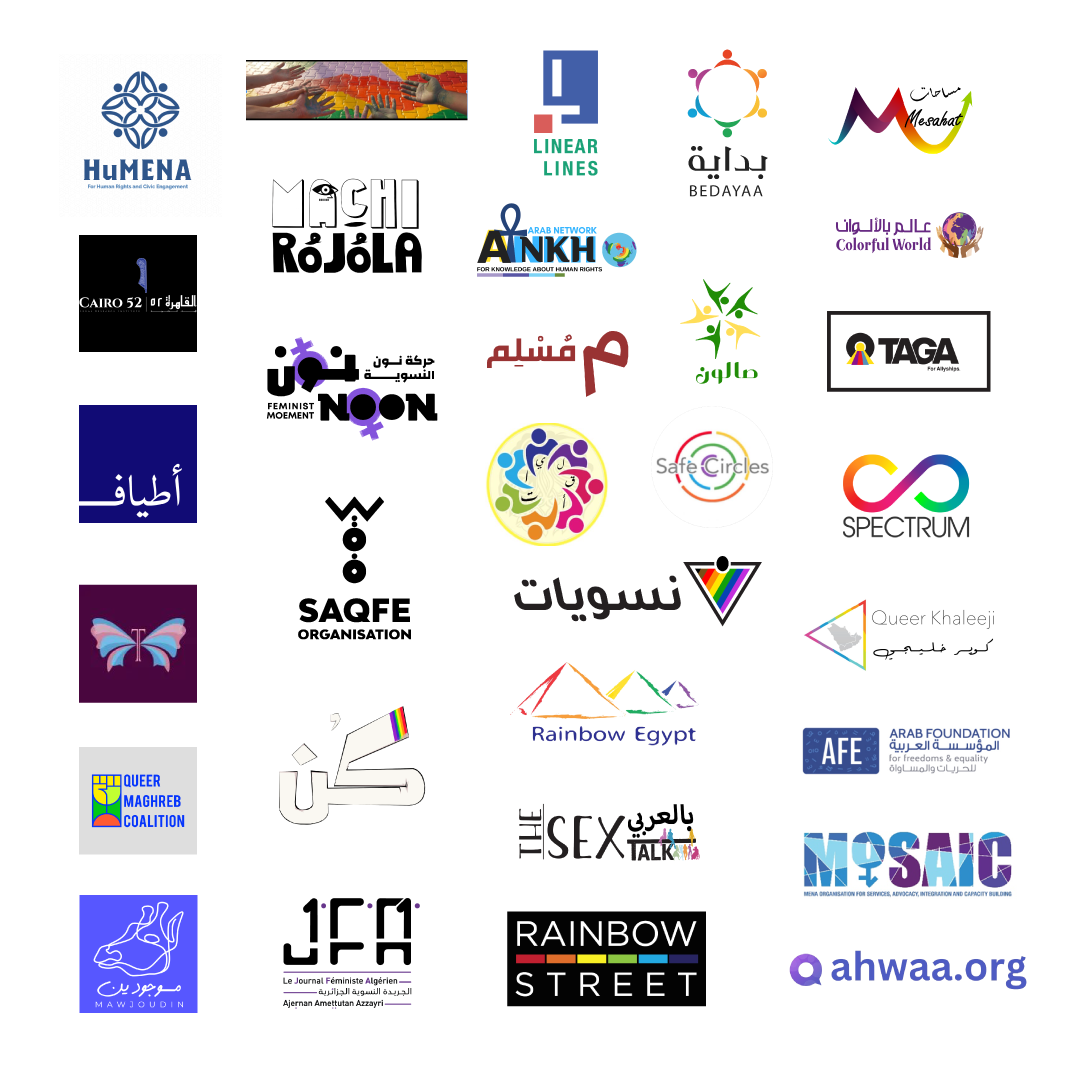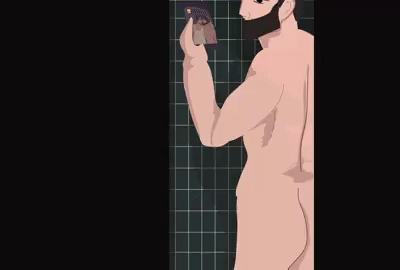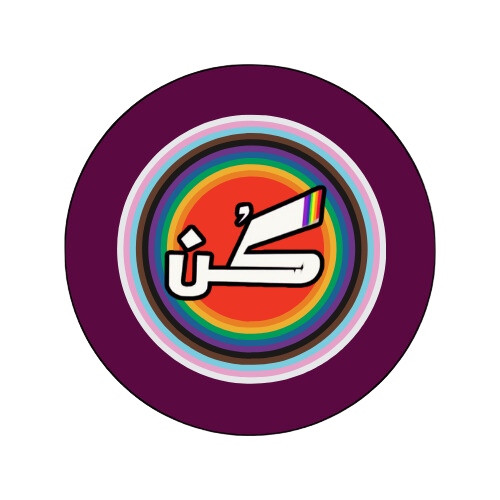Historically and until recently, the gender identity of an individual has often been confused with their sexual orientation, also, gender roles, expressions and indicators- such as hairstyle, body shape, the walk, body expression, sound, facial and body hair, etc… (The classification of these indicators may differ according to the societal environment and cultures) have been used to predict the individual’s gender or sexual identity. One of the archaic terms that are still used in our Arab societies to describe the LGBT community is the term “Tomboy”, which is a word given to a girl who is similar to men in their characteristics, behaviors, and way of dress. It is also applied to girls who participate in games and activities that require physical strength, which in many cultures, it is considered a male domain. They are often called in some cities of Libya by the term of (Aisha Rajel- Means, living a man) and is used as a blurring confusion between sexual and gender identity of an individual and their gender expressions.
This term is used to describe women (gender identity) who identify as lesbians (sexual identity) who practice or show expressions that society attributes to men (such as short hair, voice Roughness, practicing sports that society regards as masculine, studying specific scientific disciplines, etc…).
“My name is Suha (Pseudo name), (laughing) or “Naji” as my mother’s friend calls me. I am a Lesbian, I am 20 years old, I study Engineering. This was not my desire; I really do not know what my desire is so far. I have many interests, I cannot describe myself, because a question like this needs a person who understands themselves enough to describe it, so I will describe myself as others see me:
I realized, since my childhood, that I am different, I cannot explain, but that was evident in my voice, my personality, the way I speak or my tendency to have more male friends than females. I was the best football player, until now actually, as a child, a neighbor of ours taught me how to play ball. He used to take me to a place we call “Al-Izzaba” in the east, a place designated for men and I used to play there. I loved motorcycles, always. I have a lot of experience riding, disassembling and installing them. In general, I love to fix things. If button in the house is ruined, I fix it.
When distant family members visit our home, after discussing some topics with our male relatives, they praise me later to my mom, saying, “God bless her, your daughter is smart” because they always expect a certain pattern or stereotype for the topics women speak about.
I practiced a lot of physical violence in my childhood, I had a crush on our neighbor who provided private lessons at her house. (Laughing) if someone harasses her or bothers her somehow, I go beat them up for it, then their family comes, complaining. I was violent in the past, but my values have changed now. I defend people in a different way.
As for my cultural identity, I am from a Bedouin tribe, from the Red Valley in Libya. I was raised to love sheep, camels and the season is Jalame (the mowing season of sheep, one month before the summer).
How my family sees me?
Six years ago, I fell in love for the first time, I loved a girl from Tripoli and my social media was full of poems and love stories. This raised my sister’s suspicion, therefore, they waited until I was asleep and searched through my phone, appalled by seeing the conversations between me and my girlfriend, who is a straight girl, although we had chemistry going on between us, I don’t know why for certain, but perhaps because she liked the excessive attention I directed to her. I woke up and found my sisters scrambling on my phone and they asked me “Why are you writing this?!” I didn’t reply and I went back to sleep. I woke up again to my mother’s wrath of anger that struck me. It was a harsh feeling. I cried and then eventually I forgot about this, whether they discovered or not, I did not admit to being a Lesbian back then. I remember having a relationship with a straight male friend at that time, to cover up for what happened, unfortunately, he was also able to obtain the password for my account and then he discovered other conversations between me and other women, his reaction was terrible, he rushed to tell my family and I was again forced to lie and deny. He couldn’t hurt me as he wanted, I’ve completely cut him off and never talked to him since. No one has the right to out others without their consent! Whatever the reason.
My relationship with my family is different, my older sister did not have a homophobic attitude towards me, while the other one was showing hate from the beginning, three years ago, she called me a “lesbo” with the intention of insulting me, I did not feel insulted and I asserted saying: “Yes, I am a Lesbian”, she told my mother, and she took the violence approach again, but then she felt sorry and wanted to understand more about it. My mom did not know what this word means or what did it mean for her daughter to be a Lesbian. I remember one time she started praising the masculine features, their beards, their male chests and I answered her automatically: “If you knew how charming the girl’s chest is too.” And she laughed. My mom does not support the fact that I am LGBT, but what matters to me is that she knows, and that her attitude is not negative towards me. What matters here is that she is trying.
How does Libyan society see me?
You can imagine the situation when one of the girls at the university look at you in disgust just because you had consensual sex with her one day, I do not have LGBT friends, I know many members of the Queer community but we are not close.
As for my daily routine, I study at a university in the area between Ajdabiya and Sirte, 40 kilometers away from my residential area, I drive my car daily and go there, trying to stay away social gatherings between lectures or roaming in the university to avoid developing any feelings for a girl or getting into trouble because my different tendencies.
In the recent period, I was travelling to Tripoli more often, I noticed that people were surprised by my appearance. Once, I went to see a doctor and she asked me: Are you “Suha”?! I approved, so she asked again, in an uncomfortable tone: “He or She?”, “She” I answered.
Another incident, I was on the plane returning from Tripoli, I stepped into an elderly woman carrying heavy luggage and offered to help her. She was happy for the assistance and sat next to me. She started the conversation asking about my studies and she was using the masculine pronouns in her speech. I didn’t want to confuse her so I didn’t correct her. She spoke about her daughters “My daughters don’t go to universities, they stay at home, good housewives” in a satirical scene built on her assumption that I am a polite and well-mannered man who may be a good groom for one of her daughters. After the plane landed, I helped her carry her luggage out, and here I just escaped quickly to avoid the embarrassing situation in which she later discovered from my mother that I was a woman.”
